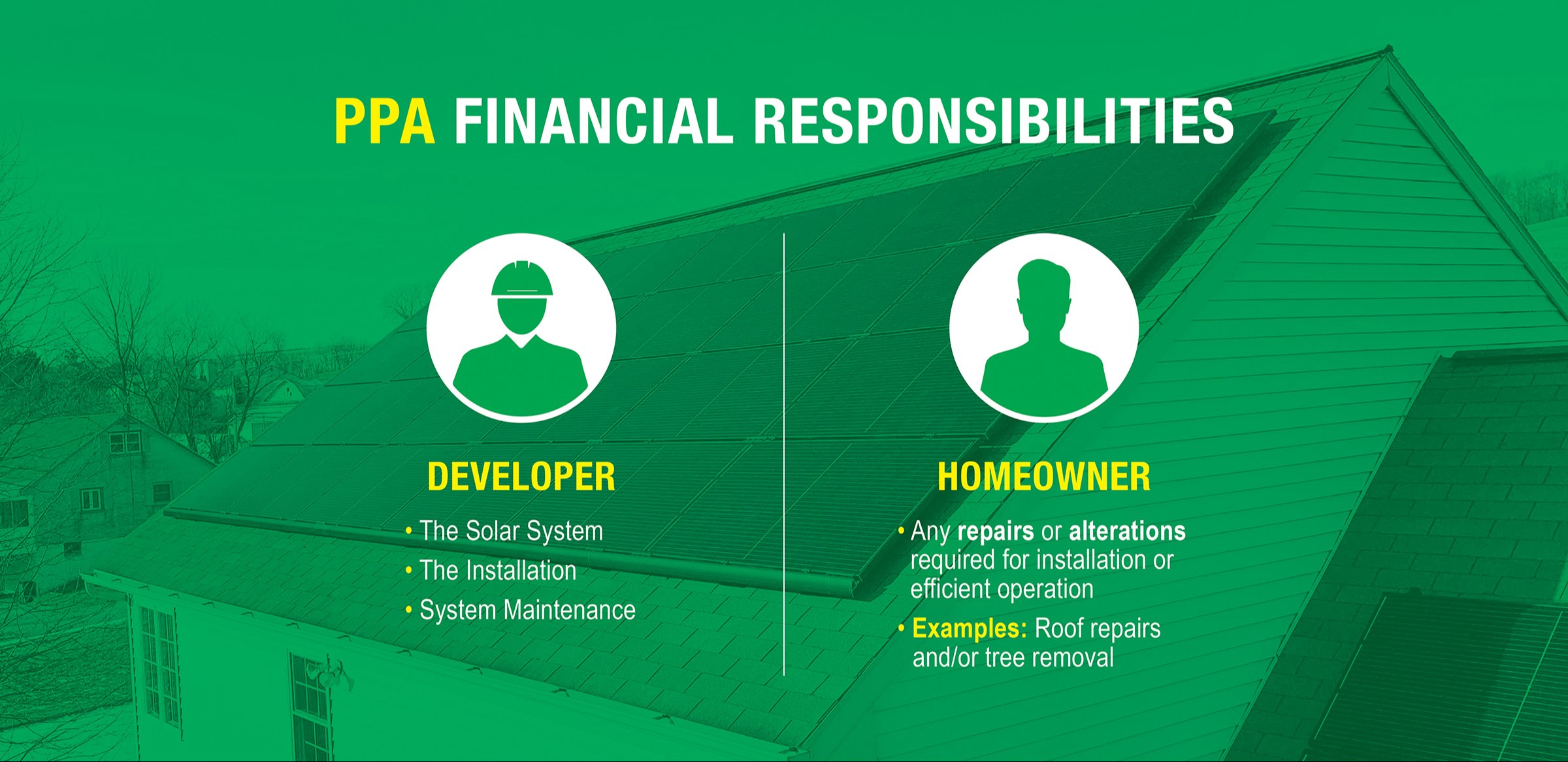Should You Buy or Lease Your Solar System?
Solar panels are fast becoming a regular feature of the American landscape. But a lot of people are surprised to learn that not all the installations popping up on their daily commute actually belong to the homeowner.
Though many who make the switch to solar power do either buy the system outright or get financing from a bank, a significant number find it’s better to lease theirs instead, through what’s called a Solar Power Purchase Agreement or PPA.
How PPA's Work
PPA’s are different than a typical lease for, say, an apartment or construction equipment. You don’t pay a yearly, monthly, or weekly fee. Though the developer does retain ownership, a PPA is a contract to buy electricity from them at a certain rate for a specified period of time—usually 10 to 25 years.
Weighing The Costs & Benefits
That electricity rate in your PPA should, of course, be lower than what your local utility company is charging. Who would want to sign a PPA, otherwise? And therein lies its beauty. You get a reduction in your monthly energy bill for the life of the lease without putting a cent down or incurring any responsibility for maintenance should the solar system wind up needing service.
Many homeowners who aren’t even all that interested in the other benefits of going solar find a PPA attractive simply because it’s a totally no-cost, worry-free way to lower their monthly electric bill.
The amount you’ll wind up saving with a PPA does, however, turn out to be less than if you’d bought the system outright or with the help of a finance company. If that weren’t true, no developer would offer a PPA. The developer is essentially taking a cut of the money switching to solar power will save in exchange for assuming both the burden of financing it and responsibility of maintaining it.

But it’s important to realize that a PPA doesn’t remove all the expenses that may be involved in fitting your home with solar panels. While the developer pays the cost of installing and maintaining your system, any repairs or alterations required for installation or efficient operation still fall on you. So, for example, if your roof needs repairing before it can support solar panels or any trees need to be removed so sunlight isn’t obstructed, those expenses would fall on you.
Moreover, there other savings you give up in exchange for the no-hassle convenience of a PPA.
Solar Renewable Energy Credits
Every time a solar system generates a certain amount of energy, its owner gets something called a Solar Renewable Energy Credit or SREC. When enough SRECs are collected, they can then be sold to utilities companies to help meet government renewable energy standards.

Accumulating and selling SRECs may sound like a tedious affair, but there are brokerage firms that handle everything. And if you buy your system outright or finance it, the money left after they take a small cut for their efforts goes to you. Whereas if you lease your system through a PPA, the developer realizes any profits from selling SRECs.
Any available special tax incentives to install a solar system also go to whoever owns it.
The Decision
Finally, though PPA’s can be transferred to new owners and, hence, will likely increase your home’s market value, it won’t be as much as when ownership of the solar system is transferred along with the rest of the property.
Though there are a lot of factors to consider when deciding whether to own or lease your solar system, a general rule applies. The more you’re just looking to reduce your energy bill with the absolute minimum expense and hassle, the more a PPA will be right for you.
The more you’re looking to realize as many financial benefits as possible, on the other hand, the more owning the system yourself will be the better option.